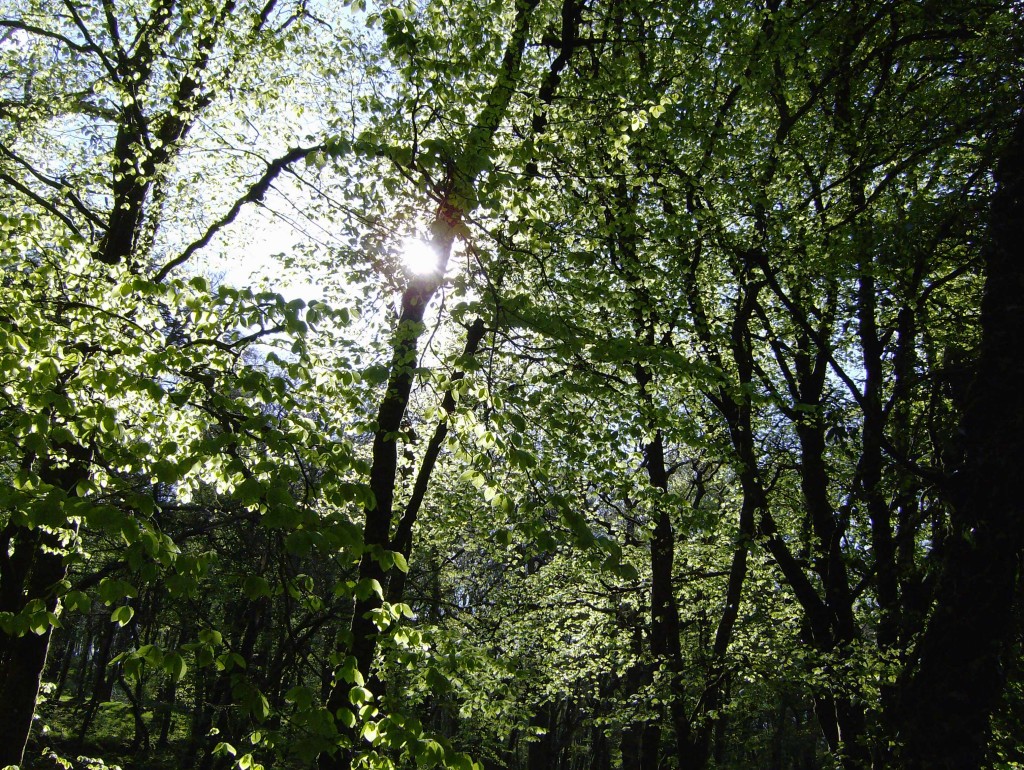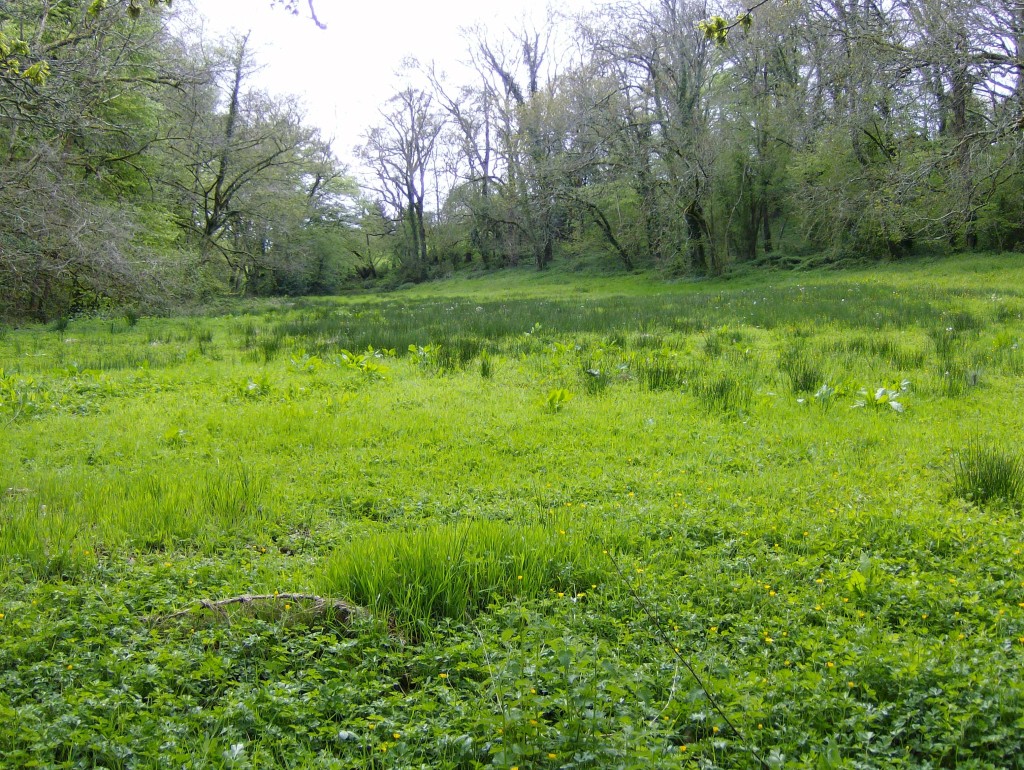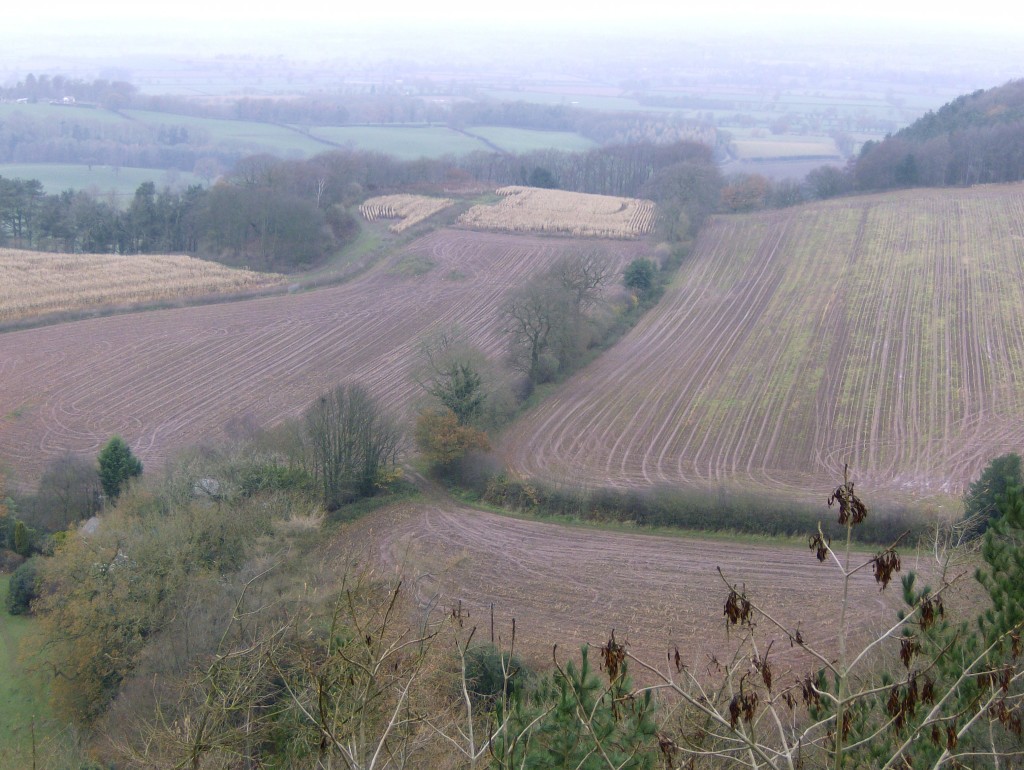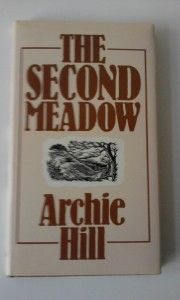To bring the dead to life Is no great magic. Few are wholly dead: Blow on a dead man’s embers And a live flame will start… Robert Graves, To Bring the Dead to Life
Archie Hill was born in rural Staffordshire during the depression of the 1930s. His family were extremely poor and Archie’s father was often only able to put food on the table by going out poaching with his friend and neighbour, Konk. Hill grew up undernourished and barely educated. But he developed an abiding love for nature and the countryside instilled to a great extent by Konk. The neighbour was slightly older than Archie’s father and became something of a mentor to the boy, teaching him about the plants and animals of the countryside and, of course, how to catch fish and game without being apprehended by the gamekeeper.  Konk features heavily in Hill’s 1982 book,The Second Meadow; his voice speaks to Hill from somewhere inside his head, guiding him through a period of self-imposed exile from society, helping him to live off the land. In many ways Konk represents a character akin to that of a Fagin or John Silver; the transgressive father-figure who beguiles a lonely boy. Or, in the case of The Second Meadow, a lonely boy now approaching fifty. Konk was by no means a dangerous criminal, he only poached game for the sport of it and to feed his family. However, he served time in prison on several occasions and Hill’s life seemed destined to follow the pattern of the older man’s when he spent two years in jail for theft in his twenties. But he discovered in prison that he had a talent for writing, and the course of his life was irrevocably changed.
Konk features heavily in Hill’s 1982 book,The Second Meadow; his voice speaks to Hill from somewhere inside his head, guiding him through a period of self-imposed exile from society, helping him to live off the land. In many ways Konk represents a character akin to that of a Fagin or John Silver; the transgressive father-figure who beguiles a lonely boy. Or, in the case of The Second Meadow, a lonely boy now approaching fifty. Konk was by no means a dangerous criminal, he only poached game for the sport of it and to feed his family. However, he served time in prison on several occasions and Hill’s life seemed destined to follow the pattern of the older man’s when he spent two years in jail for theft in his twenties. But he discovered in prison that he had a talent for writing, and the course of his life was irrevocably changed.  Hill embarked on the project that resulted in The Second Meadow for both financial and personal reasons. He was a jobbing writer who needed work and living in the wild for three months seemed like promising subject matter. He also felt the need to step outside his everyday life for a while. Indeed, he had previously attempted a more permanent stepping out with a suicide attempt that had resulted in him spending five days in a coma.
Hill embarked on the project that resulted in The Second Meadow for both financial and personal reasons. He was a jobbing writer who needed work and living in the wild for three months seemed like promising subject matter. He also felt the need to step outside his everyday life for a while. Indeed, he had previously attempted a more permanent stepping out with a suicide attempt that had resulted in him spending five days in a coma.
I suppose the pleasure of country life lies really in the eternally renewed evidences of the determination to live. Vita Sackville-West, Country Notes
Hill called in a favour from a major Staffordshire landowner whom he had first met when working on a radio documentary about poaching. The landowner was completely unfazed by Hill’s unusual request and readily agreed to him living wild for three months on a remote corner of his estate, far from public footpaths and roads. So, on a September morning Hill set up camp in a small woodland clearing. He had an army pup-tent, a Toledo steel bowie knife, a .22 air rifle, some snaring wire and very little else. He would wash and take drinking water from a stream and survive by gathering the Autumn’s harvest of nuts, berries and fungi and catching small game and fish. Hill didn’t go hungry during his time in the woods; he used the skills taught to him by Konk:
Having pitched, I telephoned Old Konk the poacher through my memory banks. Konk, who’d taught me the tricks of poaching and survival through my boyhood and early manhood years. I phoned: he answered.
But Konk emerges from this book as more than just a mentor and father-figure to Archie Hill. He personifies the land, and it is the land, with its woods, meadows and streams, that provides Hill with the solace and the healing he was looking for. Archie Hill had lived a decidedly grim life: from labouring work and a spell in the RAF Police his life spiralled downwards into mental illness and living on the streets as a down-and-out, surviving by stealing food. He drank to ease his pain and, almost inevitably, became a chronic alcoholic. In prison he wrote poetry: ‘anguished yelpings in rhyme’. After his release Hill scraped a living by writing magazine articles and radio and TV scripts. He also wrote a number of books about his beloved Black Country, several of them autobiographical. But he was still a troubled man, even though by the time he wrote The Second Meadow he had been sober for several years. Hill’s first marriage had ended in divorce and his second one was now in trouble. He was still dealing with depression and the demons of his past, and struggling to come to terms with his new responsibilities for his disabled step-son.
What was I really seeking here in the nature-stillness of woods and fields, I found myself asking. Was it just a holiday, a selfish opportunity to shun domestic responsibilities for a while? … in my youth I used to say that it wasn’t too bad to wake up and ask, ‘Where am I?’; but that it’d be a real shock to wake up and say ’Who am I?
With ink from fungi, pigeon feather quills and birch bark parchment, Hill began to note down his thoughts over the course of his time in the woods: brief observations and impressions to be expanded upon when he returned home. He spent a lot of time sitting and watching the wildlife about him, struggling to reconcile his own place in existence. His favourite spot was at the very edge of the wood, looking out over three meadows, each giving way to the next by means of a gate in the hedge. The first meadow, the one nearest the woods, teemed with wildlife; birds fed here and rabbits foraged and played. The second meadow, however, only seemed to be visited by birds. The rabbits appeared to feel safer from predators in the first meadow, close to the sanctuary of the wood. Only the more adventurous ever wandered into the second meadow and very rarely did he ever see a rabbit in the third meadow, though the pickings there, with so little competition, must have been richer.  Towards the end of his time in the woods Hill seems to reach an epiphany; he felt the baggage falling away and his life became simpler, clearer:
Towards the end of his time in the woods Hill seems to reach an epiphany; he felt the baggage falling away and his life became simpler, clearer:
The three meadows, stretching before me as I looked from my tent, gradually gave me a sharpness of mind I’d never experienced before. Other people might have done, but never me. The meadows were symbols of inner acres of knowledge, wisdom and experience. Gone away from me was the noise and bustle of ordinary living, the whine and roar of street traffic, the petty irritations of routine life. The values that I’d held dear in the years behind me suddenly seemed remote and of no importance – rivalries in commercial advancement, the daily clock-urgencies of appointments to be kept and tasks to be done. Suddenly these seemed to have no importance and no value.
Beethoven, John Donne, Jesus – all of these and others, argues Hill, ventured through the second meadow and into the third. Maybe Hill was light-headed due to malnourishment and a very limited diet, or perhaps just suffering the effects of prolonged isolation. But he was clearly changed, one might say healed by the land. The Second Meadow does not tell us how he fared with this new sense of clarity when he was plunged back into the world. But, as a work, it is saved from the excesses of cod philosophy by Archie Hill’s sharp landscape observation, sparkling prose and manifest sincerity.  Archie Hill, The Second Meadow (London, Hutchinson, 1982)
Archie Hill, The Second Meadow (London, Hutchinson, 1982)

Fascinating Bobby. Not a name I know at all.
BBC did a radio adaptation in the 1980s – I’d love to hear that again.
I’ve never heard of him either, but it sounds like a very interesting book. I like the meadow concept. Lovely photographs too – are they of the actual place?
Thanks. The pictures were taken elsewhere and the idea was to represent the spirit of what Hill wrote about, rather than the actual place. There are quite a few clues to the location in the text though; it would be interesting to try to seek it out, or would that risk disappointment?
They certainly do that well. There’s probably a housing estate on the real meadows…
He says in the book he could climb the tallest tree at the tallest point of the location and look down on his childhood home the village of Kinver (which is a 10 min drive from where I live) the only place possible to do this would be the Enville Hall estate.
This place? https://envilleestate.com/enville-estate/
I remember Hill from a documentary “Archie Hill’s Black Country” which must have broadcast in the 70s. He was the narrator, I think.
Thanks Stuart – it’s a shame that he’s something of a forgotten figure now
See https://en.wikipedia.org/wiki/Archie_Hill
Thanks JBP.
I’ve got the book.Not impossible I was born in the cottage where he lived as a child as he references the place a few times and it matches.
That’s a fascinating link. Always thought he was an underrated writer but a deeply troubled man.